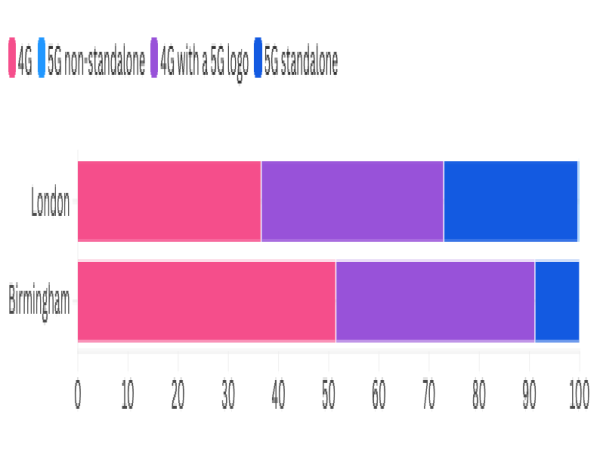Local democracy is at risk from the potential loss of 90 per cent of councillors in shire areas in the process of local government reorganisation, leading academic experts have argued in an essay published by Localis today.
The finding is contained in a new ideas paper by the think-tank entitled “Reorganisation, local government and the future of English Devolution” written by emeritus professors of local government Colin Copus and Steve Leach.
According to their calculations, if new unitary authorities in two-tier areas have populations of half-a-million then councillor numbers will decrease from around 12,000 to 1,200, placing considerable strains and unsustainable workloads on remaining councillors.
The long essay looks at the constitutional implications of the government’s directive to ensure local government reorganises itself in county/district areas and the political context for the English Devolution White Paper which was released in December 2024.
According to Copus and Leach, the white paper has set in motion a chain of events which raise a series of fundamental questions about the arguments underpinning it, with major issues of concern identified including:
constitutional issues about the role of local government;
a lack of substance and justification regarding the Local Government Reorganisation (LGR) elements of the white paper and its tenuous connection with devolution;
the inconsistencies in the potential impact of the white paper throughout England;
the discrepancies between England and other European countries in relation to the size, composition and justification for local authorities;
and, how Whitehall’s long-term policy agenda, rarely explicit, has consistently sought opportunities for reorganisation.
Localis visiting fellow, Professor Colin Copus, said: “Councillors in England have one of the highest representative ratios across Europe and as the government proceeds with an unnecessary, expensive and distracting reorganisation, we will see another drastic reduction in councillor numbers; that isn't a virtue of reorganisation, it's a hollowing-out of local democracy and a reduction in opportunities for citizens to get involved in local self-government.
“Considerable strain will be placed on remaining councillors to deal with the workload as the work of the disappeared councillors does not disappear with them.
“The job of the councillor is set to get much harder, especially given the poor support and resources they often receive and that councillors are already overworked. They risk becoming a residual rump of local democracy.”
Emeritus Professor Steve Leach added: “Local government will get less and less local and areas that have been used to their own elected council will be subsumed into meaningless conglomerates that will make no sense as units of local government and even less sense to local people.
“We are searching for the philosopher's stone of the optimum size for local government and there isn't one.
“The government is continuing with a long-standing agenda to make the centre's life easier by reducing the number of councils and councillors and the irony of its commitment to devolution shouldn't be missed here - councils need greater autonomy and freedom from the centre not making bigger to make the centre's life easier.”
Localis chief executive, Jonathan Werran, said: “Colin and Stephen’s essay is the first in Localis’s new series of ‘Other Ideas’, an occasional series of publications in which we will invite guest writers to comment at length, in order to advance arguments on topical place issues and policies.
“From my personal experience working for the District Councils’ Network, I also understand how callous and insensitive it can be to causally disregard an entire tier of local administration and cadre of dedicated local leaders and public servants at a time of turmoil.
“But like Caesar at the Rubicon, the die has been cast. And in this context, we see the value in bringing to light, while the embers are still burning, a final investigation into the rationale and the potential impacts of LGR in terms of local political economy, neighbourhood services as well as the constitutional and local democratic of a step that threatens to remove nine-out-of-ten councillors in the shires.
END
Press enquiries:
Jonathan Werran, chief executive, Localis
(Telephone) 0870 448 1530 / (Mobile) 07967 100328 / (Email) [email protected]
Notes to Editors:
About Localis
Localis is an independent think-tank dedicated to issues related to politics, public service reform and localism. We carry out innovative research, hold events and facilitate an ever-growing network of members to stimulate and challenge the current orthodoxy of the governance of the UK.
https://www.localis.org.uk/
The essay can be accessed here.
“Reorganisation, local government and the future of English Devolution
The essay will be debated from 11.00 to 12.00 on Wednesday 25th June in a policy webinar – you can register your place here
Speaker will include:
Colin Copus, Emeritus Professor Local Government, Localis Visiting FellowSteve Leach, Emeritus Professor Local GovernmentDr Thom Oliver, Senior Lecturer in Politics, University of West of EnglandCllr Marianne Overton, chair, LGA Independent GroupJack Shaw, Policy Fellow, The Productivity InstituteCllr Bridget Smith, leader South Cambridgeshire District Council, Localis Board Member
About Professor Colin Copus:
Colin Copus is an Emeritus Professor of local politics at the Department of Politics and Public Policy, De Montfort University and a Visiting Professor at the University of Ghent. His academic interests are central-local relationships and the constitutional status of local government, devolution, localism, local party politics, local political leadership and the changing role of the councillor. Colin has worked closely with policymakers and practitioners in central and local government. He was an academic advisor to the Political and the Constitutional Reform Committee, the Communities and Local Government Committee on its inquiry into the role of the councillor and is currently the academic advisor to two All Party Parliamentary Groups, the Chair of the Local Government Association and the National Association for Local Councils. He is an advisor to a range of other government and local government bodies and also a member of the Council of Europe’s group of experts on the Charter of Local Self Government.
He has published widely in academic journals. Colin’s latest book is entitled: In Defence of Councillors, published by Manchester University Press. Colin was the editor Local Government Studies 2001 to 2013. He has also served as a councillor on a London Borough council, a county and a district council and three parish councils.
Distributed by https://pressat.co.uk/





